
Colombia, Latin America: Week in Review, Venezuela
Presidents Of Venezuela And Colombia Meet To Improve Ties & Discuss Gas Pipeline Project
November 3, 2010 By Staff
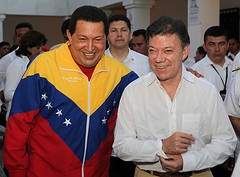
Venezuelan President Hugo Chávez and Colombian President Juan Manuel Santos met in August.
Today in Latin America
Top Story — Venezuelan President Hugo Chávez welcomed his Colombian counterpart Juan Manuel Santos Tuesday for a meeting to improve relations between the two nations.
Despite the two countries’ ideological differences and recent territorial disputes, this is the second time since Santos was inaugurated president in August that the two leaders have met.
“We will be brothers forever,” Chávez said, according to the Washington Post. The two presidents met at the Miraflores presidential palace in Caracas amidst a military band and soldiers dressed colonial-era uniforms.
The two recent meetings are an abrupt change from Venezuelan-Colombian relations during former Colombian President Álvaro Uribe’s administration. Chávez severed diplomatic ties with Colombia in July in response to allegations that his government provided a safe haven for the Revolutionary Armed Forces of Colombia (FARC) guerrilla group.
Chávez had also protested the Colombian government’s decision to allow the U.S. military to access seven Colombian bases.
Relations also hit a low point back in 2008, when Chávez protested a Colombian cross-border bombing raid in Ecuador that killed a top FARC commander. Santos was Colombia’s defense minister at the time and ordered the operation.
Trade between the two nations, which has typically been strong, plummeted during the last year of Uribe’s presidency, when Chávez ordered officials to stop buying food from Colombia and to sign deals with Argentina and Brazil instead.
The two leaders were expected to discuss the transnational gas pipeline project and sign energy, commerce and agriculture agreements.
“If we work together, our people will benefit. If we end up fighting, our people will end being hurt,” Santos said Tuesday, according to Fox News. “I believe you and I, President Chávez, understand this.”
Just Published at the Latin America News Dispatch
- Argentines came together to remember their former President Néstor Kirchner at his funeral on Monday. Joel Richards sent us this photo essay from Buenos Aires.
- National Public Radio reported last week that the private prison industry played a key role in the crafting of Arizona’s controversial immigration law. Molly O’Toole, who interviewed Arizona State Senator Russell Pearce before the primary elections, has more.
- Hispanic voices are becoming more influential as the mid-term elections approach, reports Von Diaz.
Headlines from the Western Hemisphere
North America
- A chapel where Roman Catholic priests celebrate Mass every Sunday bears a plaque thanking the donor who built it — the leader of one of Mexico’s most violent drug cartels.
- The family of a Canadian man killed in Mexico said Tuesday they suspect his high-level political connections in that country had something to do with his death.
- BP is once again reporting profits even with an estimated $40 billion price tag for the response to its blown out well in the Gulf of Mexico.
- Three Americans died in weekend in an outbreak of violence in the area of Ciudad Juarez, Mexico, a U.S. official said.
Caribbean
- The Roman Catholic Church will open on Wednesday its first new seminary in Cuba in more than half a century in a further sign of its improving relations with the island’s Communist government.
- Haitian officials advise the evacuation of relocation camp Corail-Cesselesse, declaring it unsafe if approaching tropical storm Tomas hits.
- Since scientists announced that the cholera strain was South Asian, Haitians have been protesting against the presence of United Nations peacekeepers from Nepal, where cholera is endemic.
- An American singer suspected of trying to smuggle more than a kilogram (2 pounds) of heroin in his stomach was detained as he tried to board a U.S.-bound flight at a Dominican airport, authorities said Tuesday.
Central America
- As the movement for the abolition of the death penalty gains ground worldwide, Guatemala is seeking to reintroduce capital punishment, which has been in legal limbo since 2000. Congress has already approved a law paving the way for the execution of 41 death row inmates.
- Honduras must answer to the United Nations Human Rights Council this week with respect to the numerous complaints of human rights violations committed before, during and after the Jun. 28, 2009 coup that overthrew President Manuel Zelaya.
- Former Sandinista guerrilla leader Edén Pastora denied that the Nicaraguan Army has entered Costa Rican territory, as Costa Rican officials claim.
- Costa Rica has requested a meeting of the Permanent Council of the Organization of American States to address the alleged presence of Nicaraguan military on Costa Rican territory.
- During his visit to Nicaragua, United States Assistant Secretary for Western Hemisphere Affairs Arturo Valenzuela discussed working with Nicaragua to fight narcotrafficking, to promote citizen safety and to increase economic opportunities, among other subjects.
Andes
- Colombia’s peso fell slightly on Tuesday following a package of government measures last week to help control the country’s rising currency that analysts saw as conservative.
- Venezuelan state oil firm PDVSA said on Tuesday it had an initial contribution of $400 million ready for a joint venture refinery with Brazil’s Petrobras PET4.SA.
Southern Cone
- Chilean President Sebastian Piñera’s approval ratings rose to the highest point since he took office in March, thanks in large part to the country’s successful rescue of the 33-trapped miners.
- Argentina’s soccer association appointed Sergio Batista as the country’s national team coach through 2014.
- Brazilian President-elect Dilma Rousseff said she hoped for mutual respect between the United States and Brazil and praised US President Barack Obama during a recent interview.
Image: chavezcandanga @ Flickr.
Subscribe to Today in Latin America by Email
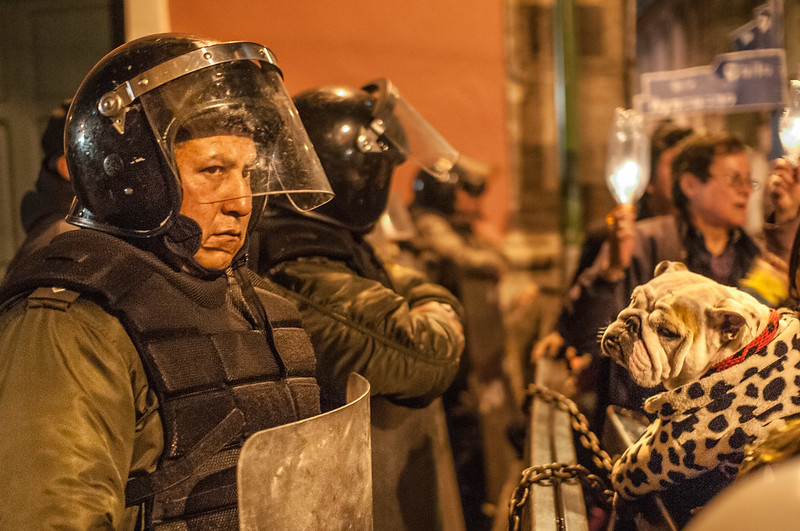
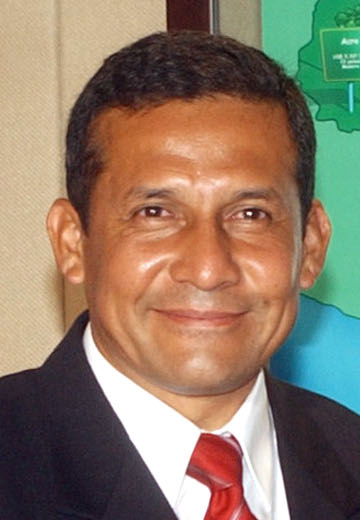
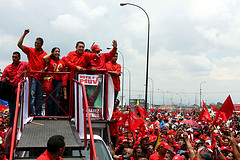
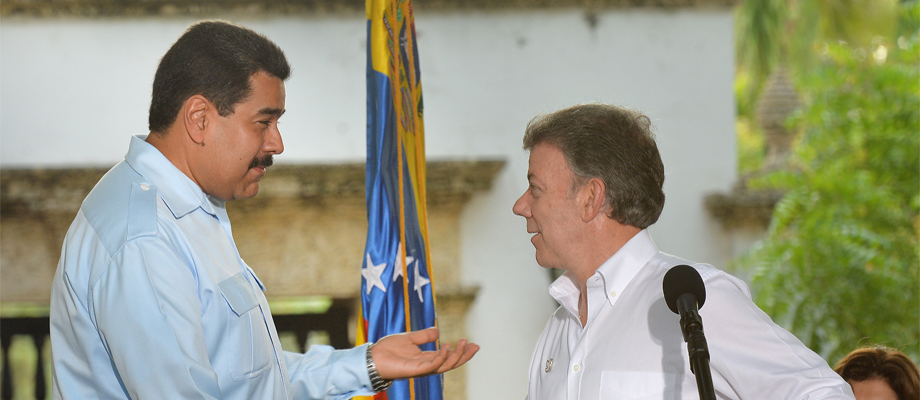
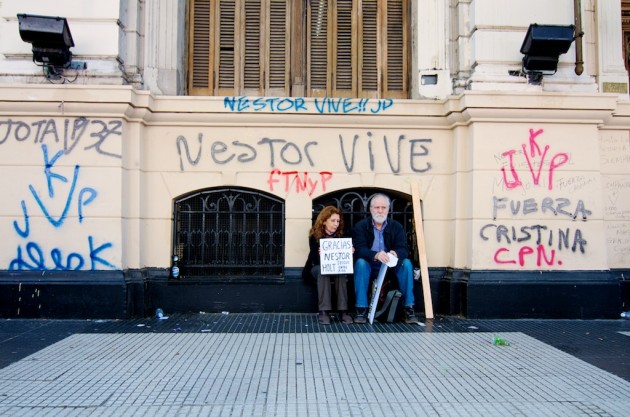
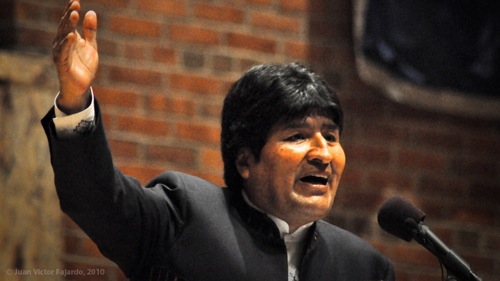
1 Comment
How sweet! I love it when world leaders act like grown ups.
My mother, on the other hand, who is slightly more cynical, commented: “Unidos en la sirvenguenzura.” Lyrically translated as –cut out of the same cloth–one to the left and one to the right.
Comments are closed.